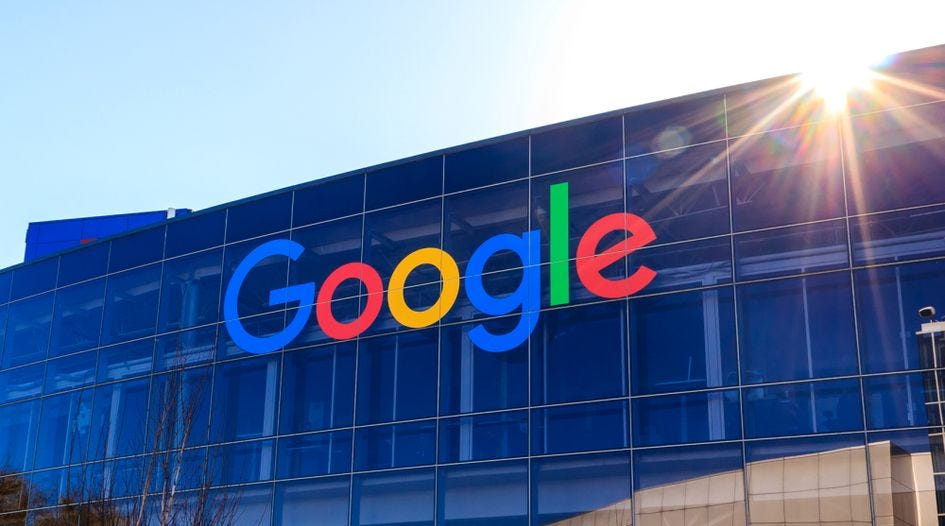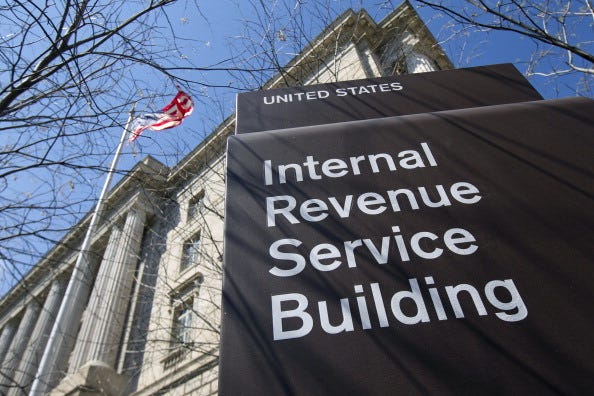
Stuff Worth Knowing for the Week of September 4, 2023
The Justice Department's antitrust case against Google begins, the ESA drops ReedPop, and the IRS turns toward AI to catch wealthy tax evaders.
Welcome back to Stuff Worth Knowing! Each week, I'll round up news related to tech, video games, film, television, anime, and more.
Tech ⌨️
The Justice Department Begins Its Antitrust Case Against Google
This week, the biggest news is undoubtedly U.S. et al. v. Google, the antitrust case against Google alleging that the search giant used its considerable power to stymy competition. For the past three years, the Justice Department has been preparing. This week, the case began. The government alleges that Google has ruined the advertising tech market, keeping itself as one of the dominant forces in the space and using that dominance to force competitors to use its products.
“Whenever Google’s customers and competitors responded with innovation that threatened Google’s stranglehold over any one of these ad tech tools, Google’s anticompetitive response has been swift and effective. Each time a threat has emerged, Google has used its market power in one or more of these ad tech tools to quash the threat. The result: Google’s plan for durable, industry-wide dominance has succeeded,” stated the Justice Department in one filing.
While the government wants Google fined and restructured, that’s not what everyone is worried about here. The case is so far reaching that the ultimate outcome of it could affect a number of companies, including Apple, Amazon, and Meta. In fact, key witnesses from many of these companies will appear at the trial.
“The Google trial is a big test for the government’s entire antitrust agenda because its theory of monopolization is very much in play with many big tech companies,” Vanderbilt University law school professor Rebecca Allensworth told The New York Times.
New York City Law Essentially Shutters Airbnb in the Region
On Tuesday, enforcement of Local Law 18 began in New York City. The law was enacted last year, requiring short-term rental hosts to register with the city and preventing short-term rentals from existing in certain buildings. Booking service platforms are prevented from processing short-term rentals that are unregistered.
The registration laws are aimed at cracking down on companies that have picked up a number of houses, condos, and apartments, but don’t actually live in those dwellings. Hosts have to be present while renting out their space and there can only be a maximum of two guests in the rental. As such, it attempts to move short-term rentals in New York City back toward Airbnb’s original premise: a homeowner temporarily renting space in their home to a client. The law also prevents dwellings covered by certain laws—including “the emergency tenant protection act of 1974, the rent stabilization law of 1969, the local emergency housing rent control act of 1962”—from receiving a short-term rental registration number.
Basically, the law narrows the scope of short-term rentals in New York City. Airbnb has called it a “de facto ban” on its service in the region. Its last lawsuit to block that law was dismissed in August. The city government hopes that the changes will stop illegal short-term rentals and perhaps get more long-term housing on the market in the city. This is only one of the many laws cracking down on Airbnb in North America and worldwide, including major tourist destinations like Italy and France.
Apple’s M3 MacBook Might Not Hit This Year
Last week, we heard reports that the iPad Pro would be getting a revamp next year. This week, it sounds like another Apple product update is going to get pushed into 2024. According to Apple analyst Ming-Chi Kuo, the new MacBooks powered by the M3 chip won’t launch before the end of the year. Previous reports from Bloomberg’s Mark Gurman pointed to three M3 Mac models this year: the 13-inch MacBook Air, 13-inch MacBook Pro, and 24-inch iMac. Assuming both reports are true, the MacBook might’ve been pushed back, with only the iMac launching this year.
There was one more bit of Apple news this week, coming from Reuters. As a part of chip maker Arm’s initial public offering documents, the company revealed that it has signed a new deal with Apple that extends beyond 2040.
This Week In X: X Corp Sues California Over Moderation Bill
Last year, the state of California signed Assembly Bill No. 587 into law. The aim of the bill is to require social media companies to submit reports about how they handle violations to their terms of service, which need to be public. X Corp is now suing the state, alleging that the bill “compels companies like X Corp. to engage in speech against their will” and violates federal free speech laws. Think of it as the other side of the recent content moderation laws from Florida and Texas.
Outside of this, X and Musk spent much of the week mired in more controversy. Earlier this week, Musk threatened to sue the Anti-Defamation League, alleging that the organization has purposefully hurt X’s ad revenue. His ongoing posts surrounding the matter have only made the situation worse, including Musk’s backing of the “#BanTheADL” hashtag. Then the X owner took heat from a story excerpt from his biography from writer Walter Isaacson, which stated that he cut off Starlink support from Ukrainian forces to prevent a sneak attack on a Russian naval fleet. Isaacson later clarified the excerpt, stating that Musk merely declined to extend Starlink support to the target region. The general thrust of the story, regardless of its accuracy, does have some questioning the communications power that’s in the hands of a private citizen.
Finally, a number of remaining X users noted that the platform is now showing unlabeled advertisements on their Following and For You feeds. Ads used to be marked with “Promoted”, but that label has changed to the smaller “Ad” in the top-right, but TechCrunch noticed that some ads are appearing with no markings whatsoever. They only appear as ads when you click on the three-dot menu in the top-right corner of the post. This would likely fall afoul of Federal Trade Commission (FTC) guidelines that require that all ads be labeled as such on online. Of course, for that to have teeth, it would have to be enforced.
Honda Joins Other Manufacturers In Moving to Tesla Standard
Everyone is slowly lining up behind Tesla’s standard charging connector for electric vehicles. Back in May, Ford moved to the standard, followed two weeks later by General Motors. Volvo was next, followed by Mercedes-Benz and Nissan in July. This week, Honda joined the party, announcing that it would also be adopting Tesla’s connector standard starting from 2025. Like the other companies, Honda will also offer a connector for current models.
Film, Television, and Streaming 🎞️
WGA and SAG-AFTRA Strikes: Studios Are Losing Money, But Not Budging
It will probably not surprise you to find out that the Writers Guild of America (WGA) and Screen Actors Guild and American Federation of Television and Radio Artists (SAG-AFTRA) strikes have not ended yet. Major studios are having to tighten their belts and adjust to properly utilize the films and shows that have already been filmed. Still, the lack of ongoing filming means there’s less coming out of the pipeline and that doesn’t count losses from situations like the inability to have actors promote their upcoming films.
This week, Warner Bros. Discovery filed an updated Earnings Before Interest, Taxes, Depreciation, and Amortization (EBITDA) statement with the U.S. Securities and Exchange Commission (SEC). In the report, the company acknowledges losses related to the strike, stating that “adjusted EBITDA will be negatively impacted by approximately $300 to $500 million, predominantly due to the impact of the strikes.”
In a statement to Deadline, SAG-AFTRA Chief Negotiator and National Executive Director Duncan Crabtree-Ireland explained that WBD’s losses could pay for what the guilds are asking for in their demands. He stated that the “$300M to $500M loss in one quarter from one company can almost pay for the entirety of the proposal package that’s on the table from SAG-AFTRA for three years.”
The day of the EBITDA statement, Warner Bros. Television started to cut some losses, suspending production deals with Greg Berlanti Productions, Bill Lawrence’s Doozer Productions, Mindy Kaling’s Kaling International, and JJ Abrams’ Bad Robot. Those deals will likely be unsuspended once the strikes are over.
Jimmy Fallon Apologizes To Staff Following Toxic Workplace Exposé
On Thursday, Rolling Stone published a lengthy report on the workplace culture behind Jimmy Fallon’s iteration of The Tonight Show. Sixteen former staffers accused the host of angry outbursts, coming to set drunk, and creating a culture that caused frequent employee turnovers.
The most damning section of the article: “Rolling Stone contacted more than 50 Tonight Show employees, past and present, during the reporting for this story. After reaching out to representatives for Fallon and NBC, Rolling Stone reached out to an additional 30 current and former staffers. While many of them praised Fallon’s immense talent and comedic gifts, not a single one agreed to speak on the record or had positive things to say about working on The Tonight Show. Nor would any of the program’s nine showrunners since 2014 comment about the program’s namesake on the record—they wouldn’t even give statements of support, as is common in the entertainment industry.” Ouch.
Fallon apologized to staff on the same day, according to Deadline. Sources also told the outlet that apparently many of the claims were years old and were part of a situation that had been solved by current showrunner Chris Miller. Miller took over as showrunner in early 2022.
Video Games 🎮
The ESA Drops ReedPop as E3 Organizer
It seems ReedPop will not be helping the Entertainment Software Association (ESA) put together its upcoming Electronic Entertainment Expo (E3) trade shows. In 2022, the ESA signed a deal with ReedPop—which runs several events worldwide, including PAX, New York Comic Con, and Star Wars Celebration—to organize future E3 events. That planned 2023 event was canceled in March of this year.
Now Gamesindustry.biz is reporting that the multi-year deal has been canceled entirely. The ESA hasn’t shuttered the 2024 event entirely, but we already know that if it happens, it won’t be at The Los Angeles Convention Center. Apparently, the ESA is working on a complete reinvention of the show for 2025, but by that point, the dominance of other shows like Summer Game Fest will probably be complete.
Donald Mustard Steps Down as Epic Games’ Chief Creative Officer
Donald Mustard, Chief Creative Officer at Epic Games and one of the major developers behind the ongoing juggernaut that is Fortnite, announced that he was retiring on X this week. Mustard co-founded Chair Entertainment in 2005, and the studio was acquired by Epic Games in 2008.
He was one of the developers behind the original Fortnite, now called Save the World, and a key mind in deciding to copy PlayerUnknown’s Battlegrounds to make Fortnite Battle Royale. The rest is history.
Nintendo Showed Developers Its Next Console at Gamescom
While Nintendo was publicly promoting the 2023 lineup for the Nintendo Switch at Gamescom 2023, Eurogamer reports that behind closed doors, the company was showcasing an early version of its next console. The demo was apparently an improved version of The Legend of Zelda: Breath of the Wild, showing the enhanced power of the new console. The new hardware is expected to come some time in 2024, but the specifics of what the console will be is currently shrouded in rumors.
AI 🤖
The IRS Turns to AI To Audit Wealthy Tax Evaders
As part of an increased focus on “high-income earners, partnerships, large corporations, and promoters abusing the nation's tax laws” it seems that the Internal Revenue Service (IRS) is turning toward artificial intelligence. In a press release, the IRS said that it has used machine-learning to identify those who are out of compliance with tax laws.
“With the help of AI, the selection of these returns is the result of groundbreaking collaboration among experts in data science and tax enforcement, who have been working side-by-side to apply cutting-edge machine learning technology to identify potential compliance risk in the areas of partnership tax, general income tax and accounting, and international tax in a taxpayer segment that historically has been subject to limited examination coverage,” says the IRS in its release.
This is not general AI, however. Instead, it sounds like the IRS has turned to specific, tuned machine learning technology focused on analyzing tax returns to look for issues of non-compliance. Hopefully, combined with experts that will look over the results, this will be a new method to crack down on tax evasion by the wealthy.
Apple Spending Millions to Train Its AI
According to a report from The Information, Apple is spending “millions of dollars” every day to train its planned artificial intelligence services. Currently, that effort is all about creating conversational AI that will help Apple device users automate certain tasks with Siri. There’s also a potential chatbot that will help AppleCare customers. A few months ago, Bloomberg’s Mark Gurman reported that Apple was working on an AI chatbot called Ajax with no clear purpose. So, at the very least, they’ve found some direction in the intervening months.
Layoffs and Labor 👷
Roku Lays Off 10% of Workforce, Begins To Remove Streaming Content
Like everyone else in streaming, Roku is starting to feel the heat. Early this week, Roku announced that it was going to lay off more than 300 employees, accounting 10% of its workforce. This is the company’s third round of layoffs, with 200 employees fired in November 2022 and another 200 employees laid off in March 2023.
The company also announced it was removing content from its streaming services in order to cut costs. The 37 shows getting the axe include Reno 911!, Most Dangerous Game, The Fugitive remake series, and a bunch of other shows you’ve likely not heard of. Most of these shows were from the short-lived Quibi service, which Roku acquired in early 2021.
For the second quarter of fiscal year 2024, Roku reported an 11% increase in net revenue year-over-year, up to $847 million. Gross profits also saw an increase up to $378 million, versus $355 million in the same period last year.













